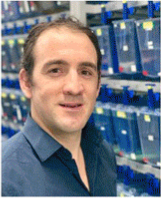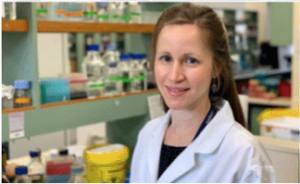Two of the six researchers who have been awarded the University of Otago’s annual Early Career Awards for Distinction in Research are Genetics Otago Members.
Dr Tim Hore (Anatomy) and Dr Erin Macaulay (Pathology) have each recieved $5000 for personal development and membership to the O-Zone Group (a group lead by GO Deputy Director Dr Louise Bicknell, providing networking and collabortation opportunity to early-mid career researchers).
Congratulations Erin and Tim!
More Information from the Otago Bulletin:
Dr Tim Hore (Anatomy)
Brought up on a Maniototo farm, Dr Hore completed secondary school and his undergraduate degree in Dunedin. His PhD at the Australian National University in Canberra was in the rapidly evolving field of epigenetics.
After post-doctoral research at Cambridge, he set up his own epigenetics laboratory in Otago’s Department of Anatomy in 2015. Epigenetic modifications are tiny chemical changes to DNA that act like signposts instructing cellular machinery what to do. His team is working on understanding how this relates to inherited memories.
“I really enjoy the buzz of new understanding, and because of recent technologies in the field of genetics, there is plenty of new understanding up for grabs.”
Dr Erin Macaulay (Pathology)
Originally from Boston, USA, Dr Macaulay completed her PhD in genetics at the University of Otago in 2011. Since 2013 she has been working as a research fellow at the University’s Dunedin-based Department of Pathology, and in August she was appointed as a lecturer in the same department.
Dr Macaulay’s epigenetics research examines both the placenta and cancer growth in an attempt to find commonalities between the two. During early pregnancy the placenta grows like a tumour, invading into the uterine wall to establish a nourishing blood supply for the baby but, unlike a malignant tumour, it knows when to stop.
“I love searching for clues about disease in a healthy tissue that many people just cast aside. Of course we all want to cure cancer, but realistically I do hope my research can contribute a meaningful piece to the cancer puzzle.”
Read the full article here.



